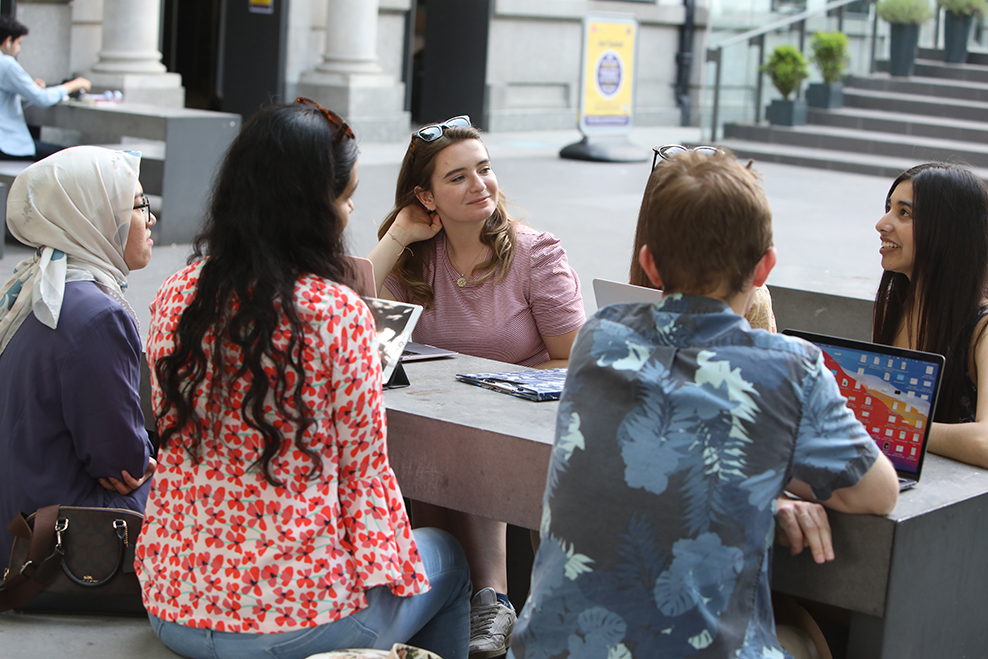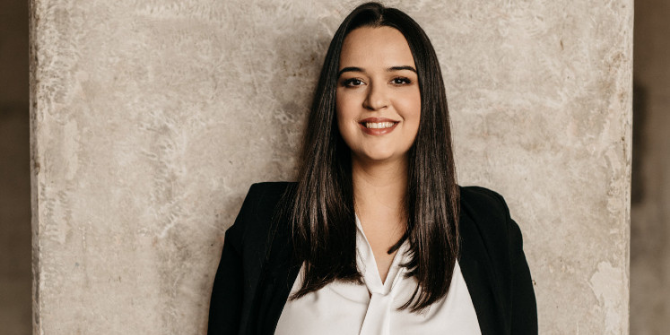Guodong Ju is a fourth year PhD student in LSE’s Department of Social Policy. In this guest blog, Guodong shares his experiences of The Alan Turing Institute’s Enrichment Scheme. Now entering its ninth year, The Alan Turing Institute’s Enrichment Scheme is designed for PhD students looking to enhance and broaden their research within the Turing community.
My experience at the Turing
I am a fourth year PhD student in LSE’s Department of Social Policy. In my dissertation, I collect data from social media to explore Chinese LGBTQ+ virtual communities, in which I use traditional quantitative methods as well as machine learning (ML) techniques. Currently, I am also a member of The Alan Turing Institute’s Enrichment Scheme, a programme supporting UK-based PhD students whose work aligns with data science or artificial intelligence (AI). I will take this opportunity to briefly introduce this programme.
My programme started in October of this year (2023) and will last for nine months. So far, my experience has been great. The Institute occupies a special space in the British Library, and I come to their offices two or three times per week, use their facilities to carry on my research, chat with my cohort members and other Turing staff, attend seminars and lectures, get to know the latest concepts and techniques in ML, and always enjoy their free fruits and cookies. As its name states, the programme aims to enrich your research without adding any burden to your PhD journey, which I think is the best part of the programme.
What the Turing offers
First, the Turing offers funding and equipment. People who are selected for the programme are offered over £430 per month as an extra stipend (note that the amount may change in the next year). There is also a grant of £1,000 per person to cover research costs such as conferences and travel. In addition, the Turing provides each student with a laptop with large RAM, cloud computing resources, and very decent workspaces (hot desks and meeting rooms).
Second, it facilitates the exchange of knowledge and ideas between some of the brightest minds in the UK. The colleagues in my cohort are talented and diverse, and everyone is proud to share their research and ideas. The Alan Turing Institute also brings together a group of outstanding scholars representing the forefront of ML research and applications. Interactions happen in lectures, seminars, random coffee chats, and mostly daily casual chats. You never know when you will hear a novel concept that might spark your innovation.
Third, it enables connections and collaborations between people from different backgrounds. If you are interested in certain projects, or wish to collaborate with someone on a new idea, you are free to contact them. In my experience, active connections are always more than welcomed. However, note that you are not required to join any research in the Turing. You will have a mediator from the Turing, but their responsibility is to answer your questions rather than to guide you on what to do. It is totally up to you to decide whether you want to participate in certain Turing projects and to what extent you want to get involved.
Other good news is that you don’t need to pause your PhD at LSE to attend the Turing scheme – the Turing scheme only aims to support your PhD, and you do them in parallel.
Tips for application
The programme usually opens for applications in November each year. Please make sure to check the Institute’s latest documents carefully, as some requirements may change between years. You can find their webpage through this link: turing.ac.uk/work-turing/studentships/enrichment.
In the application, you’ll need to fill out an online form asking about your background, motivations, and plans. Try to strictly follow their questions and highlight your advantages. I personally think that our LSE students have advantages in the application – while we may not be as good as computer science students at developing new algorithms, we are often better at identifying and addressing real-world social problems. You should clearly state why you need to use ML to help you (better) solve the problem. Also, make sure to explain about your programme’s social impact and potential ethical concerns, as these are two core factors in the evaluation.
In general, the Enrichment cohort is around 50 to 60 students each year, and the acceptance rate is about 1 in 5. You will find that most of your cohort members come from computer science, mathematics, and engineering backgrounds, but there will always be places for ML applications in policy, business, and AI ethics. In this vein, LSE research is likely to be increasingly connected to the work of the Turing.
More information about The Alan Turing Institute’s Enrichment Scheme
Now entering its ninth year, the Enrichment Scheme is designed for PhD students looking to enhance and broaden their research within the Turing community.
Applications for the next Enrichment cohort, starting in October 2024, are now open. For full details of the 2024/25 scheme, and a few changes for this year, please visit The Alan Turing Institute website.



